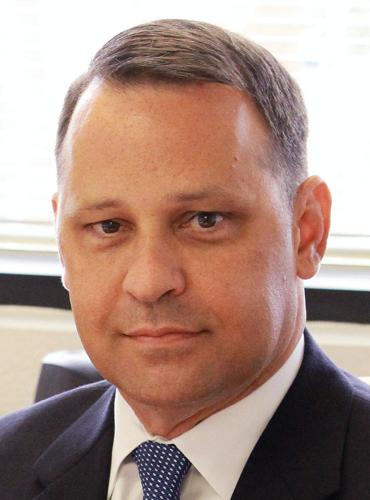PHOENIX — Gov. Doug Ducey selected two new justices for the Arizona Supreme Court Monday, including the first Hispanic to serve on the state’s top bench.
The governor chose John Lopez IV, 48, who is currently the state’s solicitor general. He heads the division inside the Attorney General’s Office charged with defending the state in litigation. Lopez also has been called upon to issue legal opinions in cases where Attorney General Mark Brnovich has had a conflict of interest.
Also tapped for the bench is Andrew Gould, 53, currently a judge on the state Court of Appeals.
Both are Republicans, like Ducey. Gould was formerly a Superior Court judge in Yuma County.
In an exclusive interview with Capitol Media Services, the governor praised all seven who were nominated by the Commission on Appellate Court Appointments for the two new vacancies created earlier this year when the Legislature voted to expand the court to seven members.
Ducey said he interviewed all nominees, including the Democrat and independent, and that the interviews were the prime factor in his decision.
Lopez and Gould stood out in being the closest to what he wants from the third branch of government, he said.
“I’m looking to someone who has a fidelity to our founding documents: the Declaration (of Independence), the Constitution and the state constitution; has a love of the law and an understanding of the separation of powers,” the governor said.
“I made the very difficult decision to pick who I thought were the two best.”
He made it clear he’s interested in more than general questions about judicial philosophy.
“I want to know their opinion on certain cases,” said Ducey, who also had general counsel Mike Liburdi sit in on the interviews.
Ducey would not disclose which prior rulings he asked about to gauge the views of applicants, saying he wants to keep that under wraps so as not to tip off others who will be applying for judicial vacancies. That most immediately will mean the process to replace Gould on the Court of Appeals.
The governor, who is opposed to abortion, specifically declined to say whether he asked any of the applicants about their views on the legal issues associated with that issue.
Ducey made it clear that he’s not interested in jurists who are looking for ways to overturn what state lawmakers have approved. “The litmus test is that people want to uphold the law, that they want to be a judge and not a legislator,” he said. “I look for judges that want to interpret the law as written.”
“But I don’t think that judges should be writing the law, rewriting the law or fixing the law,” he said. “That is the Legislature’s job.”
Ducey, who previously appointed political independent Clint Bolick to the state’s high court, is getting to name the two Republicans because of a law he signed earlier this year expanding the bench. He said a larger court will mean the ability to take on more cases as opposed to simply affirming appellate court rulings by refusing to consider them.
“I also think it right-sizes the court to states of equal size and equal population,” he said.
Ducey said the chance to name the first Hispanic to the Arizona Supreme Court did not figure in his decision.
“These selections were made on the merits,” he said.
“His interview was excellent,” Ducey said, adding that Lopez had “incredible references and recommendations.”
Lopez helped out the governor at least indirectly earlier this year when he issued an opinion declining to block the release of funds for Proposition 123. That voter-approved measure crafted by Ducey earmarks $3.5 billion for schools in the coming decade, including $2.2 billion in extra withdrawals from the state land trust account.
State Treasurer Jeff DeWit, a foe of the plan, raised legal questions about the distribution. But Lopez declined to intercede, saying it would be improper because of a pending federal court lawsuit.
Lopez also told members of the state Board of Investment they face no personal liability for going along with what voters approve, even if a court were to subsequently decide the move was illegal.
He also is involved in an effort to have the Arizona Supreme Court overturn an appellate court ruling that voided state law denying bail to accused sex offenders. The majority ruling in that case concluded the constitution allows people to be kept in jail pending a trial only if prosecutors can show that no conditions of release can be imposed to ensure protection of others.
That ruling was not unanimous, with Gould filing a dissent.
Gould said the express purpose of the statute and its companion state constitutional provision “is to protect victims and the community.” That, he said, makes its purpose “regulatory, not punitive.”
Gould also authored a unanimous appellate court ruling that said Arizonans can sue those who have harmed them, even in cases in which they had voluntarily agreed to arbitrate instead. He wrote that arbitration agreements that are a financial burden on individuals are legally “unconscionable” and therefore unenforceable.
That ruling, believed to be the first of its kind in the state, was a major victory for those who may not have thousands of dollars to fight a claim through arbitration. Instead, it permitted them to retain an attorney who is willing to handle the case on a fee-contingent basis and be paid only if he or she wins.
It also was a setback for many businesses that now routinely put boilerplate language into contracts requiring clients and customers to submit to arbitration.
But it is most likely to affect the most complex and costly claims, like medical malpractice.







